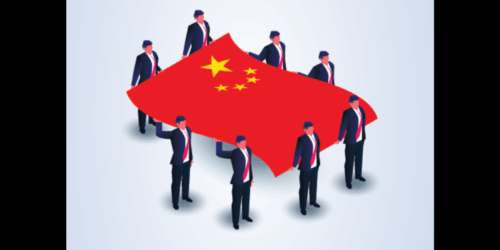How has China reacted to the Trump Administration’s recently announced plans to roll back many Obama-era regulations aimed at limiting CO2 emissions?
China’s President Xi has clearly signaled that China intends to position itself as the political center of gravity when it comes to climate issues, in addition to the economic center of gravity that it has already has become in this important area. Climate policy and technology provide a unique vehicle for China to contribute to the global commons intellectually, economically, and politically. For all the rhetoric of “great power relations” that China has used to frame the US-China relationship, this is an area where a pullback in US climate action truly enables China to take the lead on the global stage. There were few areas in which this was possible before. In some ways, whether the US formally withdraws from Paris or not, default US withdrawal through many policy shifts will have a similar effect. Paris commitments were always made on a voluntary basis.
It seems that the US is unlikely to meet its Paris commitments as a result. Is China on track to do so?
China was largely on track to meet its Paris commitments related to CO2 emissions even before the formal announcement in Paris, given changes in the structure of the national energy supply and economic structure. Whether specific commitments related to capacity levels of particular renewables are met is another story, given the long investment cycles involved and absorption capacity by the current grid, etc. However, China is certainly in a strong position to meet its national emissions peak target and the IEA believes it will do so ahead of time – maybe by 2025 instead of by the pledged 2030 goal. A major upturn in subsidies and investment in steel and other energy intensive sectors would delay this, of course, which is always a possible lever to maintain employment levels.
Is China serious about lowering its C02 emissions, and are they willing to slow growth in heavily-CO2 emitting industries to do so?
It depends on who you are asking – at the national level, yes, regulators are serious and have become more serious as emissions growth has indeed begun to slow. The national emissions trading system will be launched this year, for example. This makes their position of support politically expedient. If you speak to the fossil industry and some local governments whose revenue and employment figures depend on such industry, they tend to be less supportive. This is an interesting area in which Trump climate pullback and Chinese domestic political economy intersect intimately. As others have also noted, corporate fossil interests in China had long used US recalcitrance on climate to lobby for a slowing of climate action in China – the current Trump reconsideration of Paris has emboldened such interests.
Are there diplomatic and strategic reasons why has China seemingly embraced multilateral efforts to combat climate change, and if so, how does the US retrenchment on these issues impact Beijing’s thinking?
One of the largest successes of Paris was political – there was finally a consensus that the old “developed vs. developing world” debate around national contributions to emissions was counterproductive at worst and misleading at best. China’s rapid leapfrogging of the US as the world’s largest emitter and its significant economic weight meant that it was caught between having the responsibilities of a largely developed global power but the political pressures to lead the developing world bloc, along with India. This made meaningful climate progress on a global level difficult. In the US, anti-climate interests also used China’s lack of support in such talks to undermine significant US participation – and the vicious cycle continued. Paris seemed to break that cycle, as China’s economy had already begun to shift towards more investment in clean energy, services, and meeting targets began to look more viable. With the US disengaged, China is in a position to drive the international climate agenda, for example relating to the setting of standards around measurement, reporting, and verification (MRV), which are central to any efforts.





